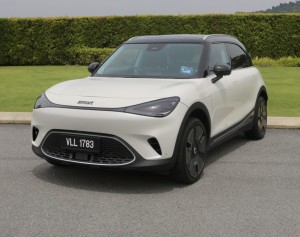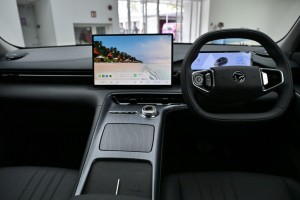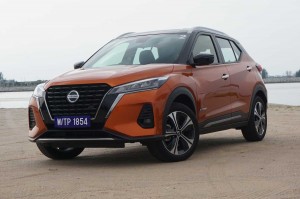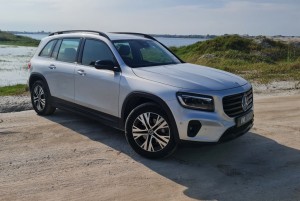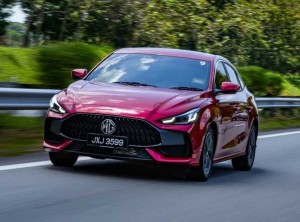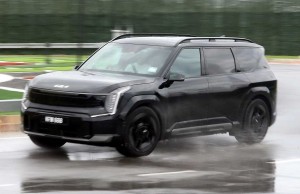WOLFSBURG: Volkswagen asked its workers to take a 10% pay cut on Wednesday, arguing it was the only way that Europe's biggest carmaker could save jobs and remain competitive as profits plunged to a three-year low and union bosses threatened strikes.
It was the first official confirmation of cost-cutting measures VW wants to implement to turn around its fortunes as high costs and weak demand in China dragged down sales and left its factories bloated from overcapacity.
The company did not address directly the issue of whether it planned to close factories in Germany for the first time in Volkswagen's 87-year history, though labour representatives said that option remained on the table.
VW's problems have fed wider anxieties about Germany's status as an industrial powerhouse and the competitiveness of European carmakers against encroaching global rivals.
German automakers also fear the impact of a standoff between the European Union and Beijing, with EU tariffs of up to 45.3% on Chinese electric vehicles coming into force this week.
"We urgently need a reduction in labour costs in order to maintain our competitiveness. This requires a contribution from the workforce," Arne Meiswinkel, the VW brand's personnel chief who leads negotiations for the carmaker, said.
Volkswagen released its third-quarter results on the same day as the second round of what have been acrimonious talks between the company and unions over wages and its broader future.
The two sides agreed to keep talking and will meet again on Nov 21.
For Volkswagen, the third-quarter results were further evidence that major change was needed to keep the company competitive.
But worker representatives accuse management of bungling decisions and tearing up a treasured consensus on decision-making. They came into talks demanding a 7% pay rise and threatened strikes from December unless the company definitively ruled out plant closures.
"From the company's point of view, plant closures are still on the table, i.e. they have not been completely ruled out," Volkswagen works council head Daniela Cavallo said.
"Today is at best the starting signal for a marathon in which both sides have finally understood that they have to cross the finish line together."
Ahead of the talks, which took place at the stadium where the VfL Wolfsburg Bundesliga team plays its football, fretful employees and trainees left handwritten and typed letters on display on tables.
"The disappointment and the fear is great," one wrote. "The family obviously doesn't want me," said another.
Volkswagen on Wednesday reported a 42% drop in third-quarter profit to its lowest level in three years.
"This highlights the urgent need for significant cost reductions and efficiency gains," finance chief Arno Antlitz said in a statement.
Antlitz said he was confident that the company could reach an agreement with workers but could not rule out strikes, with the company considering more than 10 billion euros in cost cuts.
He said there was a comeback plan for China that includes spruced up software and driving assistance, expecting to regain market share from 2026 or 2027.
The German government has been pushing for a solution that keeps VW's plants open, but a spokesperson on Wednesday said it was too early to decide whether Berlin would provide state aid.

The European car market has shrunk by about 2 million vehicles since the pandemic, resulting in about 500,000 fewer unit sales for Volkswagen annually.
Cheaper models from Tesla and Chinese carmakers have gained market share in Europe.
"We stand for free and open markets, if you look at Chinese competitors, they already embarked to set up plants in Europe," Antlitz said.
"We have not forgotten how to build great cars, but our production costs are far from competitive," he said. "We should really use time to increase our competitiveness on German plants."
In China, Volkswagen has also lost market share to cheaper models from local competitors, and the impact has been exacerbated by a wider slowdown in the Chinese economy due to a real estate crisis.
Volkswagen's deliveries to China, the world's biggest car market, fell by 15% to 711,500 vehicles in the third quarter. This dragged down the global figure, which dropped to 2.176 million vehicles. The 2024 dividend will also be lower.
Year-to-date, Volkswagen's stock has lost about a fifth, underperforming a 10% drop in the pan-European automotive index.
Unions cannot hold wider strikes until December as part of a previously agreed truce, but labour leaders have repeatedly threatened that workers would do whatever is in their power to prevent what they consider to be a breaking of taboos.
Management says the German plants are far more expensive to operate than those of competitors because of high costs for workers and energy.
Antlitz said cuts would be hard, "and that many employees are worried about their future".
"We are facing essential and painful decisions," he said.

